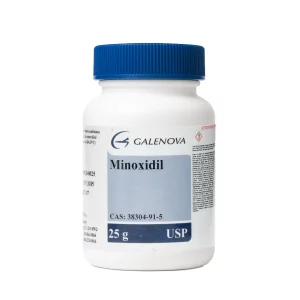Your cart is empty.
Your cart is empty.
Metformin, a medication typically used to manage type 2 diabetes, has garnered attention for its potential weight loss benefits. Research suggests that metformin can aid in weight reduction, particularly when combined with dietary changes and exercise. Studies indicate that metformin works by decreasing appetite, improving insulin sensitivity, and altering gut bacteria.
Individuals with insulin resistance or those at risk of developing type 2 diabetes may benefit from metformin’s weight loss effects. However, results vary, and metformin should not be seen as a quick fix. A typical metformin dosage for weight loss ranges from 500 to 2000 mg per day. Furthermore, when it comes to metformin vs semaglutide, metformin may have a more modest weight loss effect. Before considering metformin for weight loss, consult a healthcare professional to discuss potential benefits and risks. They can help determine if metformin is suitable for your specific needs and health status. If prescribed, ensure to buy metformin from a reputable source.
Metformin is a medication primarily used to treat type 2 diabetes. It works by decreasing glucose production in the liver, improving insulin sensitivity, and enhancing glucose uptake by muscles. This leads to better blood sugar control and reduced insulin resistance. Recently, metformin has gained attention for its potential weight loss benefits. Some studies suggest it can aid in weight reduction, particularly for individuals with insulin resistance. By improving insulin sensitivity and metabolism, metformin may help minimize weight gain associated with diabetes. As research continues to explore metformin’s effects beyond diabetes management, its potential role in weight loss and overall health is becoming increasingly recognized.
Metformin may support weight management by reducing appetite, improving insulin sensitivity, and enhancing fat metabolism. By decreasing hunger and caloric intake, metformin can lead to weight loss. Additionally, metformin improves insulin sensitivity, enabling glucose to enter cells more efficiently, which can also contribute to weight reduction. Metformin’s effect on fat metabolism may further aid in weight management.
Studies have shown that metformin can lead to modest weight loss in both diabetic and non-diabetic individuals. In clinical settings, the typical metformin dosage for weight loss ranges from 500-2000 mg/day. While metformin is primarily prescribed for type 2 diabetes, its potential benefits for non-diabetic and pre-diabetic individuals seeking preventive health strategies are being explored. Consult a healthcare professional to determine if metformin suits your needs and health status, especially considering its potential role in weight management and overall health.
Metformin, a medication typically used to manage type 2 diabetes, has shown promise in aiding weight loss. Clinical studies have reported modest weight loss results, with average weight changes ranging from -2 kg to -5.8 kg over 6-12 months. The effects of metformin on weight loss can vary depending on baseline BMI, age, and metabolic markers, such as insulin resistance.
Key Findings:
Limitations and Considerations:

To use metformin safely for weight loss, medical supervision is essential. Metformin is typically prescribed for type 2 diabetes, and its use for weight loss should be discussed with a healthcare provider. Common protocols involve starting with a low dose (500-1000 mg/day) and gradually increasing as needed. Pairing metformin with regular physical activity and a balanced diet is crucial for optimal results. To integrate metformin into a wellness routine, focus on sustainable lifestyle changes, monitor progress, and avoid overreliance on medication. A healthcare provider can help determine the best approach for individual needs and health status.

Ongoing research explores metformin’s potential to extend lifespan and reduce age-related disease risk, beyond its role in weight loss. Theories suggest metformin may impact mitochondrial function, inflammation, and cellular aging. The TAME (Targeting Aging with Metformin) study, a landmark trial, investigates metformin’s effects on aging and age-related diseases. While promising, caution is needed when interpreting longevity claims, as current clinical evidence is still emerging.
Metformin’s potential anti-aging benefits may be significant, but more research is required to fully understand its effects on human longevity and healthspan. Consult a healthcare professional for personalized guidance on metformin and its potential benefits.
Metformin isn’t approved for weight loss in healthy individuals; consult a healthcare provider before use for safe supervision.
Visible weight changes with metformin typically appear within 3 to 6 months, influenced by lifestyle factors and individual response.
Metformin dosing for weight loss varies; start with 500 mg, adjusting based on tolerance and results under medical supervision, ideally.
Research suggests that Metformin mainly reduces fat mass, but combining it with exercise helps preserve lean body mass and supports overall muscle health.
Metformin isn’t a replacement for diet and exercise; it’s most effective when combined with a healthy lifestyle for weight management.
https://doi.org/10.3390/ph14020122
https://www.sciencedirect.com/science/article/abs/pii/S0003450925000446?via%3Dihub
https://pmc.ncbi.nlm.nih.gov/articles/PMC6520185
https://doi.org/10.3390/ijms24032227

Minoxidil 25mg - Oral vasodilator for blood pressure management. Cardiovascular foundation support, pharmaceutical-grade standards, expert monitoring required.

Acarbose 50mg 120 Tablets - Gentle introduction to glucose control. Three-times daily with meals, precision-formulated tablet strength.

Dasatinib 20mg 60 Tablets - Flexible pediatric-strength dosing option. USP standards compliance, anytime administration, gradual increase capability.
Unlock savings on bundles and elevate your online experience today!